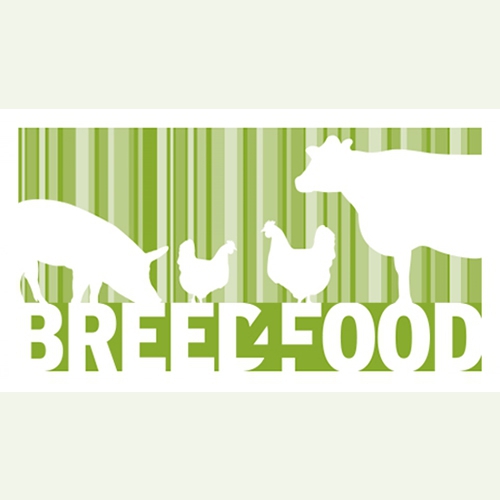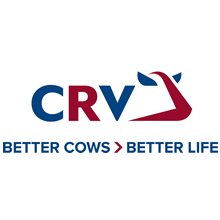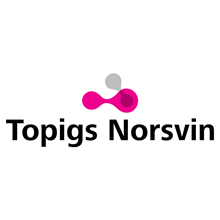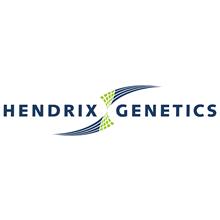Thursday November 10th, about 50 members of the Breed4Food community and external invitees were present in the Omnia-building on Wageningen Campus. Another 25 members and external invitees also participated online, including several employees of the partners that work abroad.
The chair of the Board of Breed4Food, Sander de Roos, paid attention to the milestone ‘10 years Breed4Food’ in his opening words of the seminar. Priority number one of the consortium Breed4Food remains the contribution with research and development to a sustainable food production. The Breed4Food partners do so by selecting the best animals as parents for the next generation, against a sustainable breeding goal. After the opening statement, manager Han Swinkels gave the floor to the program manager Mario Calus, who gave a nice overview of the scientific achievements and business impact of the consortium Breed4Food over the last 10 years. Mario also looked ahead while introducing the five themes of the ongoing research program Breed4Food III which supports the ambition of the consortium Breed4Food to remain world leading in breeding and genomics research.
Karel de Greef started off with the theme ‘Ethics & Society’ presenting on how to respond to the changing societal and consumer demands. Together with contributions of two members (Marije Klever and Franck Meijboom) of the external advisory board he addressed the ongoing activities on how to engage in a dialogue with society and the planned activities to get a better understanding on the impact and ethical issues of breeding on a food system in transition. Engaging in a dialogue is all about getting a better understanding of the opinion of other members of the society by listening instead of talking. Together as consortium partners, we have to make a narrative on the contribution of breeding and livestock on the society. This narrative should be part of the ongoing societal debate on the future of livestock farming in the Netherlands and abroad.
Jérémie Vandenplas, theme ‘Core engine for genomic prediction’ stated that we should be proud of what is achieved with improving the performance of MiXBLUP. All Breed4Food companies are happy that MiXBLUP enables to run their genomic evaluations very efficiently. The improvements in speed performance are impressive. For the upcoming years, there are challenges such as how to handle the increasing volume of data and complexity of models for multi-breed genetic evaluations. Jérémie reacts to a question that the critical success factor is the cooperation among the Breed4Food partners. Besides that it is also important to keep the door open for collaboration with other research groups that also work on models for genomic prediction.
Aniek Bouwman and Ina Hulsegge, theme ‘DNA informed breeding’ presented the latest results on identifying additional DNA information and their relevance for breeding programs. An important goal is to increase the frequency of rare alleles in the population, because these are easily lost in a population under selection. But how to pick up unique new mutations? The chance you find something is small, and identifying them requires sequencing an animal and both its parents. Structural variation, such as copy number variants (CNV) are also under investigation, including how to detect and impute them. Finally, a genome profile tool has been developed that provides an extensive report about the genome of an animal. Several people in the audience suggest that all genotyped animals in a breeding program should be screened with this tool, to see if they have any interesting or unwanted features.
Claudia Kamphuis, theme ‘Phenotyping Interface’, presents the latest results of the research on the use of high-dimensional and longitudinal data. Due to their resolution, both types of data can contribute to increase the accuracy of phenotype and genomic prediction. An additional question addressed, is to quantify the magnitude of genotype x environment interactions in livestock populations as reported in the literature. A final aim is to make better use of information about the underlying biology of traits, in phenotype and genomic prediction. An important point made in the discussion is that measurements that may be dismissed in other fields due to their limited accuracy, can be useful in animal breeding, provided that there is sufficient data available, such that sufficient accuracy can be obtained by accumulating information of multiple measurements.
The final theme ‘Breeding program optimisation’ was introduced by Mario Calus. Genomic prediction is now the core of all major breeding programs. Torsten Pook presented the stochastic simulation tool MoBPS, which supports breeders to optimize their breeding program design. Tobias Niehoff presented his ideas on the utilization of Mendelian Sampling variance in animal breeding programs, and how this potentially can be used in combination with a mate allocation tool. Finally, Larissa Zetouni presented research that aims to identify outcross animals in populations, and how to optimize the design of reference populations to get sufficiently accurate genomic breeding values for those outcross animals. Based on a question from the audience, there was some discussion as to whether stillborn animals should be genotyped, and their information used in the breeding program, as they provide information about genetic variation which should be selected against in a breeding program.
Overall, we look back on a very interactive seminar with great contributions of the members of the five themes of Breed4Food and a lot of questions and suggestions from both the live and online participants. It was also nice to share the latest results with several external invitees from a.o. the European Forum of Farm Animal Breeders (EFFAB), TKI Agri&Food, chain partners and the government. And yes, we are on track with the research thanks to the efforts of our highly motivated teams. We are looking forward to share new results with our research community and external invitees in the fall of 2023!





